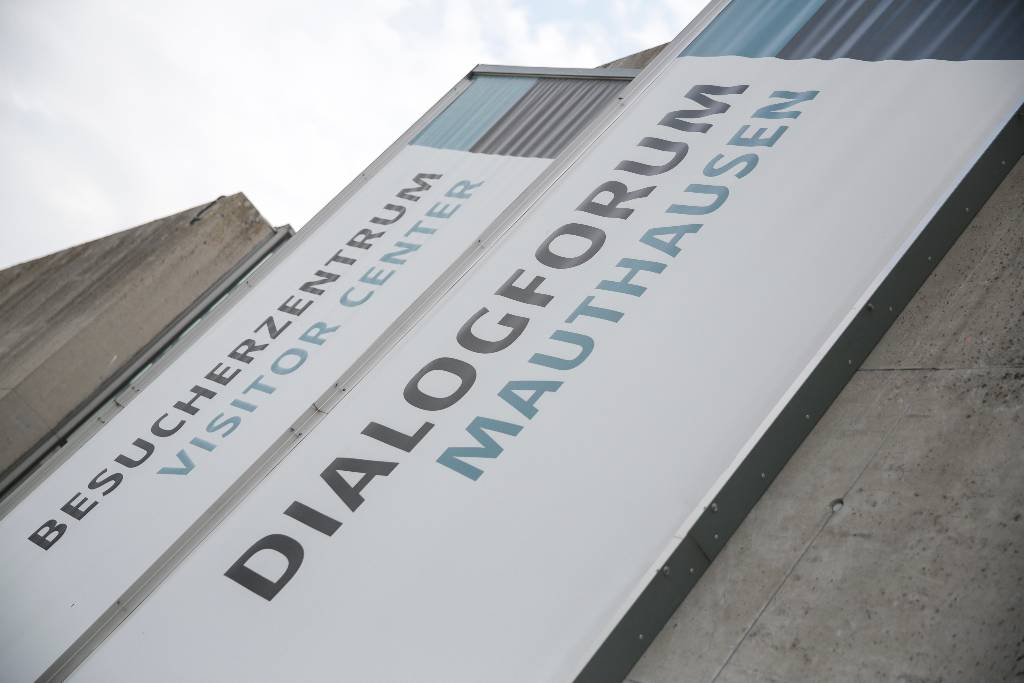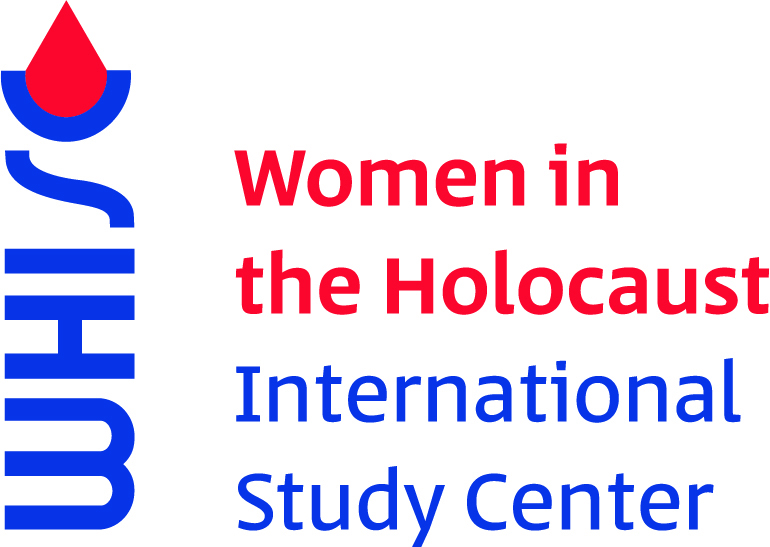Dialogforum Mauthausen 2024
13.09.2024, 10:00 - 14.09.2024 18:00 Uhr
„Women in the Holocaust“

Das diesjährige Dialogforum der KZ-Gedenkstätte Mauthausen findet von 13. bis 14. September im Besucher*innenzentrum der Gedenkstätte zum Thema „Women in the Holocaust“ statt.
Tagungssprache: Englisch
Dialogforum 2024: Mauthausen, 13 & 14 September 2024
Visitor Center of the Mauthausen Memorial, Erinnerungsstraße 1, 4310 Mauthausen, Austria
The Mauthausen Memorial and WHISC - Women in the Holocaust - International Study Center at Moreshet Mordechai Anielevich Memorial Holocaust Study and Research Center, Givat Haviva, Israel will host the conference which will take place on 13 and 14 September 2024 in Mauthausen, Austria, at the Visitor Center of the Mauthausen Memorial. The conference language will be English.
The Conference
The Women in the Holocaust conference will be held in Austria, a country which was already part of the German Reich at the beginning of World War II. It was the home of prominent perpetrators of the Holocaust such as Adolf Eichmann, Ernst Kaltenbrunner and Franz Stangl – all of them being born in Upper Austria, where, as Gauleiter August Eigruber happily announced, the Mauthausen concentration camp was installed in 1938. Having one of the toughest camp conditions in the Reich, Mauthausen, its branch camp Gusen and their over 40 subcamps became the mass grave of at least 90.000 prisoners. In total, around 190.000 persons were imprisoned in the camp complex from 1938 until 1945, approximately 10.000 being female.
WHISC is the only comprehensive study center that focuses on the study of the fate of women – Jewish and non-Jewish – in the Holocaust in a multidisciplinary manner.
The study of women and gender relations in the Holocaust represents a challenge for historiographical research, which until the last third of the 20th century accepted gender-hegemonic concepts as a given and presented the past as the "history of great men". The diverse roles that women played in history were thus excluded. The categories of "woman" and "man" were simultaneously essentialized and the binary gender order was accepted unquestioningly as a supposedly natural given.
The Women in the Holocaust conference would therefore like to address questions of the historicity of such gender orders and explore the role of women during National Socialism according to Gisela Bock as perpetrators, victims, followers, bystanders, members of the resistance and helpers. It confronts the question of how to fruitfully integrate the histories of occupation, antisemitism, and ethnic racism, as well as issues of competing victimhood in the various countries with a focus on a women-specific perspective. There also are scholarly challenges involved when one considers the intersectionality of race, class and gender as well as other categories of difference, and the impact, tensions, and traumas they have produced.
The Women in the Holocaust conference promotes scholarly discussion and debate on the various divides, connections, and intersections that can be found in Holocaust and Gender Studies about women during the National Socialist period.
The Women in the Holocaust conference aims to probe and challenge disciplinary boundaries to advance multidisciplinary, interdisciplinary, and transdisciplinary inquiries into the subject of women in concentration camps and other repressive institutions.
Please register for participation in the 15th Dialogforum here.
Registration closing: 10 September 2024
Program:
Friday, 13 September 2024
10:00 Reception
10:30–11:00 Introduction & Welcome Speeches by the Organizers
11:00–13:00 Panel 1: Gendered Violence and Persecution (Chair: Lily Zamir, Israel)
- Anca Diana Axinia (Italy): Gender and the Representation of Violence in the Bucharest Pogrom (January 21-23, 1941)
- Daina Eglitis (USA): “Why did Hitler kill everybody and you’re not dead?”: Victimization of Jewish Women Survivors in Soviet Filtration Camps
- Danielle Wirsansky (USA): Gendered Persecution: Women Agents of the Special Operations Executive in Nazi Concentration Camps
- Verena Meier (Germany): Spaces of Resistance of Sinti and Roma Women during the Nazi Persecution
13:00–14:00 Lunch Break
14:00–15:30 Panel 2: Stigmatization and Repression of Women and their Bodies in Camps (Chair: Elisa Frei, Austria)
- Britta Geschwind (Sweden): From Ravensbrück to Refugee Camp in Sweden: Female Survivors, Venereal Disease, and Sexual Stigma
- Rieke Schröder (Denmark): Bad Blood. Exploring the Ambiguous Role of Menstruation in Nazi Concentration Camps
- Felicitas Pock (Austria): Clandestine Abortions in National-Socialist Concentration Camps
15:30–16:00 Coffee Break
16:00–18:00 Guided Tours through the Mauthausen Memorial
- Queer stories (Marlene Wöckinger)
- Women in the Mauthausen concentration camp (Frauke Umdasch)
- General tour of the Mauthausen Memorial (Martin Kagerer)
18:00 Short Break
18:15 Departure to Linz by Bus
20:00 Screening of Film Ostatni Etap (“The Last Stage”, PL 1948) at the Moviemento Cinema in Linz; Introduction by Christoph Huber (Austrian Filmmuseum)
Saturday, 14 September 2024
9:00–10:45 Panel 3: Methods of Survival (Chair: Nathalie Soursos, Austria)
- Julia Fröhlich (Austria): Fleeing One’s Home, Fighting for Survival: Female Greek-Jewish Refugees and their Exodus Across the Aegean (1943-1944) as a Display of Female Agency, Transgression and Resistance
- Katherine Funk (United Kingdom): “He saved my life:” Women’s Descriptions of Survival and Survival Strategies in Sobibór Death Camp
- Marta Pawlińska (Poland): “I put fingers in my mouth and stared at the ceiling”, Performative Strategies of Polish Jewish Women on “Aryan papers” employed as Domestic Servants in German Households
- Olga Stefan (Switzerland): Real Comrades in Struggle and Suffering: The Women of Vapniarka
10:45–11:00 Short coffee break
11:00–12:30 Panel 4: Forced Labor and Sexualized Violence Against Women at Mauthausen Concentration Camp (Chair: Gregor Holzinger, Austria)
- Silke Umdasch (Austria): Sexualized Violence against Women in Mauthausen Concentration Camp
- Randi Becker (Germany): Intersectional Persecution: The Story of Franziska W.
- Olga Ungar (Israel): Challenging Traditional Roles: Jewish Female Deportees from Bačka in Austria, 1944–1945
12:30–13:15 Lunch break
13:15–15.00 Panel 5: Female Resistance Against the NS-Regime (Chair: Rebecca Rose, USA)
- Caroline Francois (France): The Participation of Nuns in the Resistance
- Sylwia Szymańska-Smolkin (Sweden): Heroines of the Białystok Ghetto: The Significance of Integrating Female Narratives into the History of Jewish Resistance during the Holocaust
- Mechthild Gilzmer (Germany): Resistance at the Margins. Women from the French Colonies
- Gil Faran (Israel): Female Prisoners Escape from Auschwitz
15:00–15:30 Coffee break
15:30–16:30 Panel 6: Female Profiteers of the NS (Chair: Verena Meier, Germany)
- Judith Vöcker (Sweden): “Ordinary women” or Female Perpetrators? The German Female Employees in German Courts in Nazi Occupied Poland (1939–1944)
- Lisa M. Gottschall (Austria): The Role of Female Scientists in Propagating “Völkisch” Paradigms: Academic Engagement, Career Paths, and Self-Perceptions
17:00 End of Conference

.png)